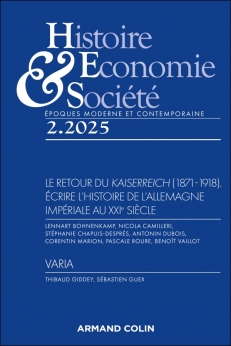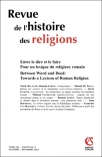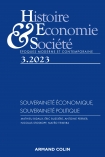
HISTOIRE, ÉCONOMIE ET SOCIÉTÉ (2/2025)
Pour acheter ce numéro, contactez-nous
Recevez les numéros de l'année en cours et accédez à l'intégralité des articles en ligne.
Au cours de l’histoire de l’Empire allemand, de nombreux parlementaires ont été à la fois membres du Reichstag allemand et de la Chambre des représentants de Prusse. Le phénomène de ces « doublesmandats » a toutefois été généralement réduit par l’historiographie à l’aspect du financement des mandats au Reichstag. Depuis l’introduction d’indemnités pour les députés du Reichstag en 1906, il n’y avait plus de raison de financer le mandat au Reichstag par un second mandat à la Chambre des représentants. L’analyse des ego-documents des parlementaires montre cependant que ce n’est pas la loi de 1906, mais deux processus de développement de long terme qui ont conduit au recul des doubles mandats : depuis les années 1890, la professionnalisation et la démocratisation de la politique ont rendu de plus en plus difficile l’exercice simultané des deux mandats pour les parlementaires. Cet article démontre qu’avec le recul des doubles mandats le système de gouvernement hégémonique de l’Empire a perdu l’un de ses principaux éléments structurels et n’a pas pu compenser cette perte d’une autre manière jusqu’en 1918.
In the history of the German Empire, there were numerous parliamentarians who were simultaneously members of the German Reichstag and the Prussian House of Representatives. However, the phenomenon of such dual mandates has usually been reduced by researchers to the aspect of financing Reichstag mandates. Since the introduction of parliamentary allowances for members of the Reichstag in 1906, there had no longer been any reason to finance the Reichstag mandate with a second mandate in the House of Representatives. However, an analysis of the parliamentarians’ own ego-documents shows that it was not the law of 1906, but two long-term development processes that led to the decline in dual mandates: from the 1890s onwards, the professionalisation and democratisation of politics made it increasingly difficult for parliamentarians to hold two mandates at the same time. With the decline in Doppelmandaten – so the thesis goes – the hegemonic system of government of the German Empire lost one of its most important structural elements and was unable to compensate for this loss in any other way until 1918.

